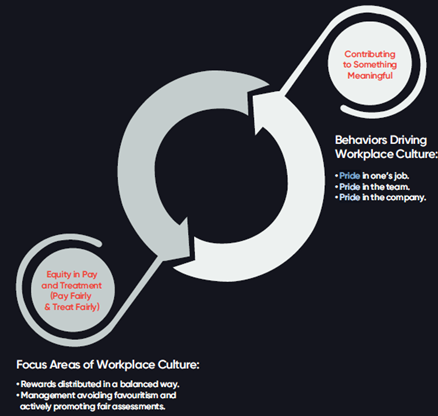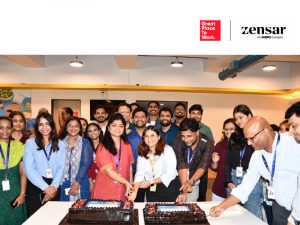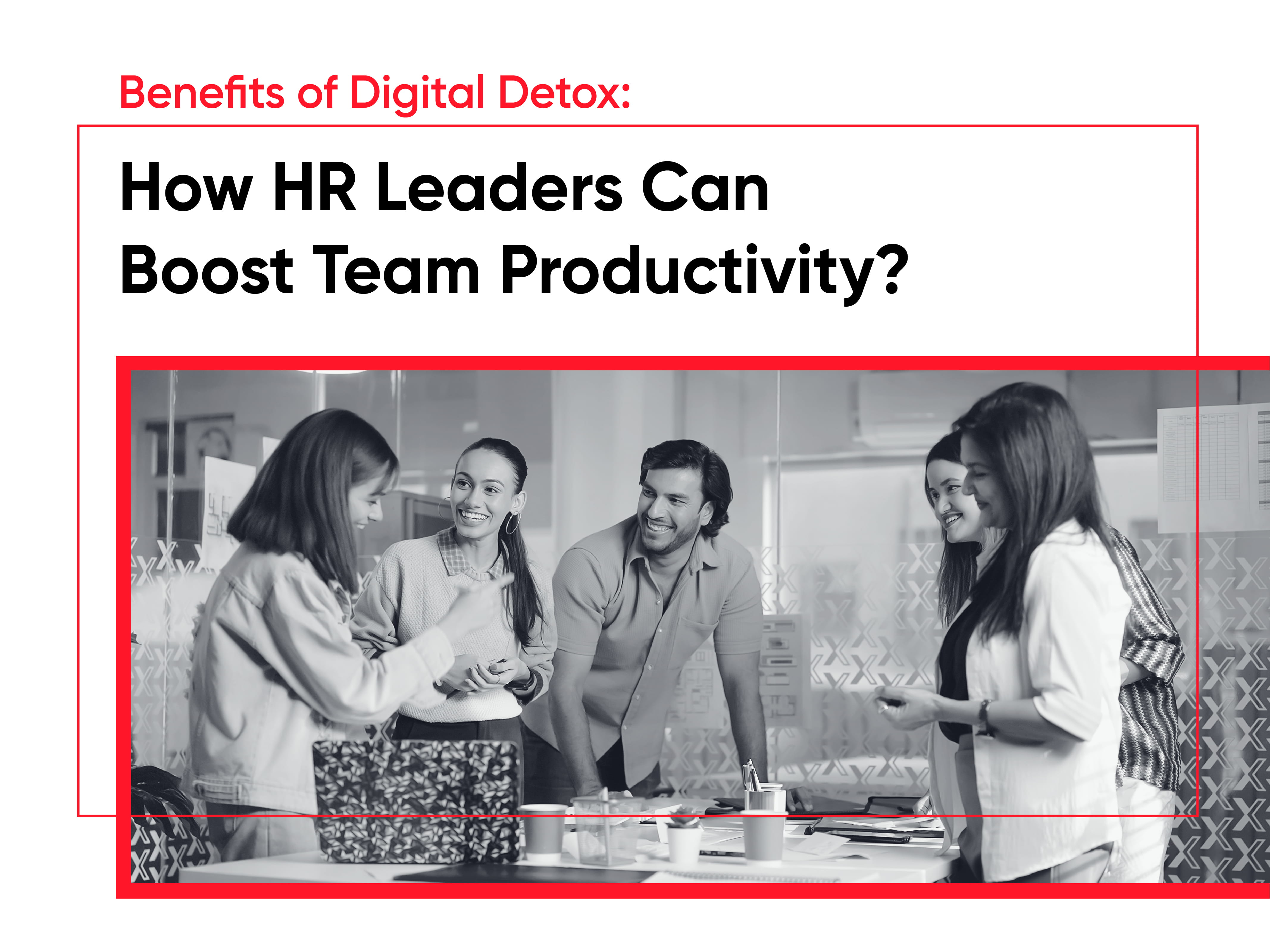In today’s competitive business environment, attracting and retaining top talent is crucial for organizational success. A company’s achievements rely not just on its products or services but significantly on its employees’ collective strength and commitment. According to a study by RSM India, organizations recognized as Best Workplaces have demonstrated a remarkable 14 times increase in cumulative returns on their initial investments since 2008-09. This substantial growth underscores the value of cultivating a positive workplace culture. By prioritizing employee satisfaction, engagement, and development, companies can drive superior performance, innovation, and long-term profitability, establishing a strong competitive advantage in the market.

5 Dimensions of Indian Workplace Culture across Demographics and Industries
Camaraderie
Camaraderie measures the sense of enjoyment in the workplace by assessing the level of intimacy and connection employees experience with their colleagues. When employees share a strong sense of camaraderie, they are more likely to feel engaged, supported, and motivated.
The importance of camaraderie lies in its ability to create a positive work atmosphere where employees feel valued and understood. It helps in reducing stress, as individuals who enjoy strong interpersonal relationships at work are better equipped to handle challenges and conflicts. Moreover, a workplace with high camaraderie often experiences lower turnover rates, as employees are more likely to stay with a company where they have formed meaningful bonds.
Credibility
Credibility measures the extent to which employees perceive management as trustworthy, reliable, and competent. When employees view their leaders as credible, they are more likely to have confidence in their decisions, directions, and communications.
Employees rely on credible leadership to provide guidance, support, and a sense of stability within the organization. When management is perceived as credible, employees feel more engaged, motivated, and invested in their work. They are more willing to collaborate, take initiative, and contribute their best efforts towards achieving organizational objectives.
Credibility is especially crucial during times of change or uncertainty, as employees look to leadership for reassurance and direction. Leaders who demonstrate integrity, honesty, and authenticity in their actions are better able to navigate challenges and inspire confidence among their teams.
Respect
Respect measures the extent to which employees feel valued, appreciated, and treated fairly by those in leadership positions. When employees feel respected by management, they are more likely to be engaged, motivated, and committed to their work.
Respect is demonstrated through various actions, including active listening, acknowledging contributions, providing opportunities for growth and development, and treating all employees with dignity and fairness. It involves creating an inclusive environment where differences are celebrated, and everyone’s voice is heard and respected.
The presence of respect in the workplace has numerous benefits. It leads to higher levels of employee satisfaction, increased morale, and improved overall well-being. Employees who feel respected are more likely to collaborate effectively, communicate openly, and contribute their unique skills and perspectives to achieve organizational goals.
Moreover, a culture of respect contributes to lower turnover rates as employees are more likely to remain loyal to an organization where they feel valued and respected. It also enhances employer branding, making the organization more attractive to prospective employees and customers alike.

Pride
Pride measures the extent to which employees take pride in their work, their team or work group, and the overall company. When employees feel a sense of pride, they are more likely to be motivated, productive, and loyal to their organization.
At an individual level, pride in one’s work reflects a deep sense of accomplishment, fulfillment, and personal investment in the tasks and projects they undertake. It encompasses feelings of satisfaction derived from overcoming challenges, achieving goals, and delivering high-quality results.
Similarly, pride in one’s team or work group reflects a sense of camaraderie, collaboration, and mutual respect among colleagues. Pride in the company reflects a strong sense of belonging, loyalty, and commitment to its mission, values, and reputation. Employees who feel proud of their organization are its best ambassadors, advocating for its products, services, and culture both internally and externally.
Fairness
Fairness measures the extent to which employees perceive management’s practices as just, equitable, and unbiased. When employees believe that they are treated fairly, they are more likely to feel motivated, engaged, and committed to their work.
One crucial aspect of fairness is impartiality, where decisions are made based on merit and objective criteria rather than personal biases or favoritism. Employees expect fair treatment in various aspects of their employment, including recruitment, promotion, performance evaluation, and compensation.
Fair pay is a significant concern for employees, as they want to receive compensation commensurate with their contributions and market value. Gain-sharing programs, where employees are rewarded based on collective performance and productivity, can further enhance perceptions of fairness and promote a sense of shared ownership and accountability.
Addressing perceptions of fairness requires a proactive approach from management, including regular assessments of policies and practices to identify and address areas of potential bias or inequality. By prioritizing fairness, organizations can build a culture of trust and fairness where employees feel valued, respected, and motivated to contribute their best efforts towards achieving organizational goals.

Pride and Fairness Define Workplace Culture Fulcrum of India 2023
Organizations must recognize the importance of cultivating a positive workplace culture that prioritizes the well-being and success of its employees. By embracing these key dimensions of workplace culture, organizations can differentiate themselves, attract and retain top talent, and achieve sustainable growth and success in the dynamic Indian market. Visit us here to learn more.











